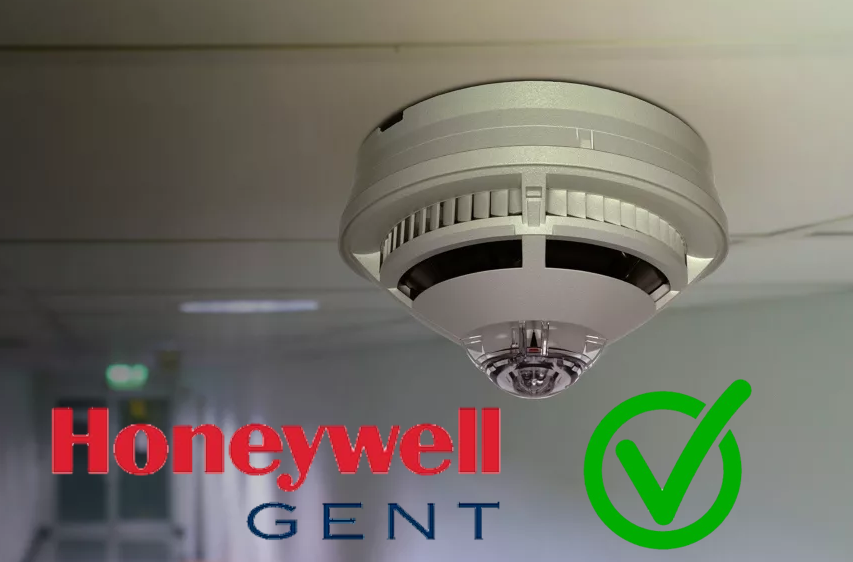Gent Fire Alarm Training

Introduction
Becoming a qualified Gent fire alarm installation engineer is a rewarding career path within the fire industry. This role requires a mix of formal education, hands-on training courses, and practical experience. This article will explore what it takes to become a qualified Gent fire alarm installation engineer, covering the essential training courses, fire alarm systems, fire detection systems, and more.
Educational Background and Qualifications
Basic Education and Electrical Qualifications
To begin a career in the fire alarm industry, a solid educational foundation is necessary. Typically, a minimum of GCSEs in Mathematics and English is required. More importantly, obtaining electrical qualifications such as City & Guilds 2365 or an NVQ Level 3 in Electrical Installation is essential. These qualifications provide a foundational understanding of electrical systems, which is crucial for installing and maintaining fire alarm systems.
Gent Fire Alarm Training
Overview of Gent Fire Alarm Training
Gent fire alarm training is designed to equip attendees with the knowledge and skills required to install, maintain, and troubleshoot Gent fire alarm systems. Honeywell Gent offers a variety of training courses tailored to different levels of expertise, ensuring that engineers are well-prepared for their roles.
Types of Training Courses
Foundation Courses: The Gent Vigilon Maintenance & Fault Finding Training course is an excellent starting point. This training covers the basics of the Gent Vigilon fire alarm system, including system components, wiring architecture, and common faults.
Advanced Certification: For more in-depth knowledge, the Gent Certification Training (GECTMETA) is a comprehensive five-day course. It covers advanced topics such as the configuration of Gent Vigilon Plus systems, battery calculations, and system programming.
Training Course Structure
The Importance of Hands-On Experience
Practical exercises are a critical component of any fire alarm training course. These exercises allow attendees to apply theoretical knowledge in real-world scenarios, enhancing their problem-solving skills and preparing them for on-site challenges.
Key Components of the Training
System Design and Planning: Training courses often start with the basics of fire alarm system design, ensuring that engineers understand the principles of creating effective fire detection systems.
Installation and Configuration: Courses cover the step-by-step process of installing and configuring fire alarm systems, including setting up control panels and integrating various detectors and devices.
Fire Alarm System
Understanding Fire Alarm Systems
Fire alarm systems are essential for ensuring the safety of buildings and their occupants. These systems detect fire incidents early, allowing for timely evacuation and response. Understanding the various components and functionalities of a fire alarm system is crucial for any installation engineer.
Components of a Fire Alarm System
Control Panel: The heart of the fire alarm system, where all signals from detectors are processed and alerts are generated.
Detectors and Devices: These include smoke detectors, heat detectors, and manual call points, all of which play a critical role in detecting fire incidents.
Alarm Devices: Sounders and visual alarm devices that alert occupants in the event of a fire.
Fire Detection System
Key Elements of a Fire Detection System
A fire detection system is designed to identify fire incidents at the earliest possible stage. This system includes various detectors that sense smoke, heat, or other fire indicators, triggering the fire alarm system to alert occupants and initiate safety protocols.
Integration with Fire Alarm Systems
Fire detection systems must be seamlessly integrated with fire alarm systems to ensure comprehensive protection. Proper training in system integration and configuration is essential for engineers to create efficient and reliable fire safety solutions.
Roles and Responsibilities of a Fire Alarm Engineer
Installation Engineer
Design and Planning: Creating detailed plans for fire alarm system installations, ensuring compliance with relevant standards.
Installation: Setting up and configuring fire alarm systems, including wiring and control panel setup.
Testing and Commissioning: Conducting thorough testing to ensure the system functions correctly and meets all safety standards.
Maintenance Engineer
Regular Maintenance: Performing routine checks and maintenance to keep the fire alarm system in optimal condition.
Fault Finding and Repair: Diagnosing and fixing any issues that arise, ensuring the system remains fully operational.
Career Path and Professional Development
Apprenticeship Programs
Gent and its partners offer apprenticeship schemes that provide hands-on experience and training in fire alarm system installation and maintenance. These programs are an excellent way to start a career in the fire industry.
Continuing Professional Development (CPD)
Ongoing training and participation in CPD seminars are vital for staying updated with the latest advancements in fire detection and alarm systems. These seminars cover topics such as fire safety legislation, building regulations, and new technologies.
Conclusion
Becoming a qualified Gent fire alarm installation engineer requires a combination of formal education, specialised training courses, and practical experience. By completing the necessary training courses and gaining hands-on experience, engineers can ensure they are well-prepared to install, maintain, and troubleshoot fire alarm systems effectively. This career path offers numerous opportunities for professional growth and specialisation, making it a rewarding choice for those interested in fire alarm jobs.
Every Job is Easier if You Have the Right Tools
